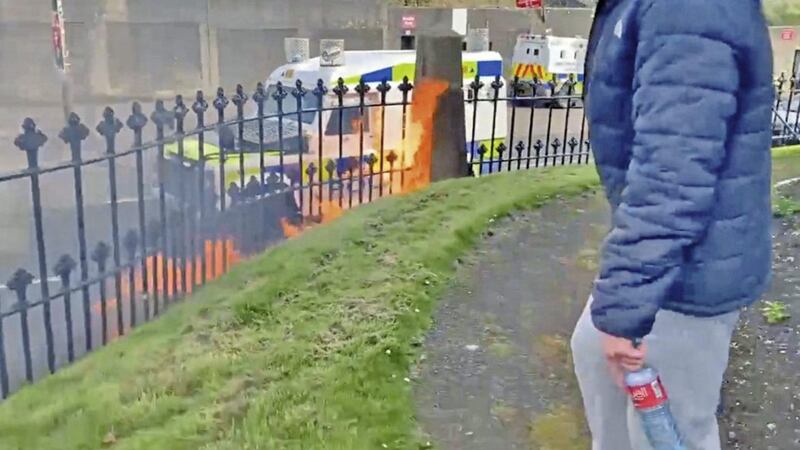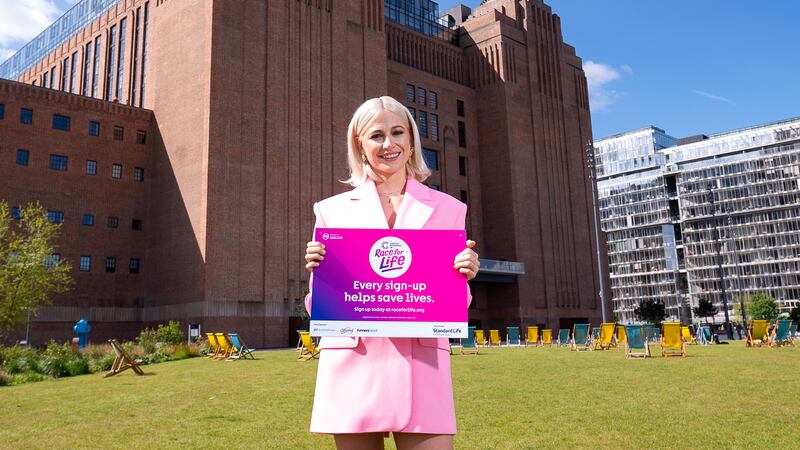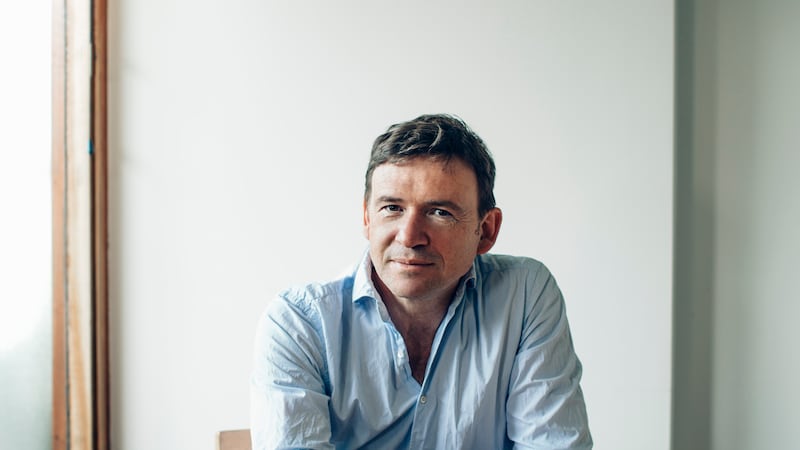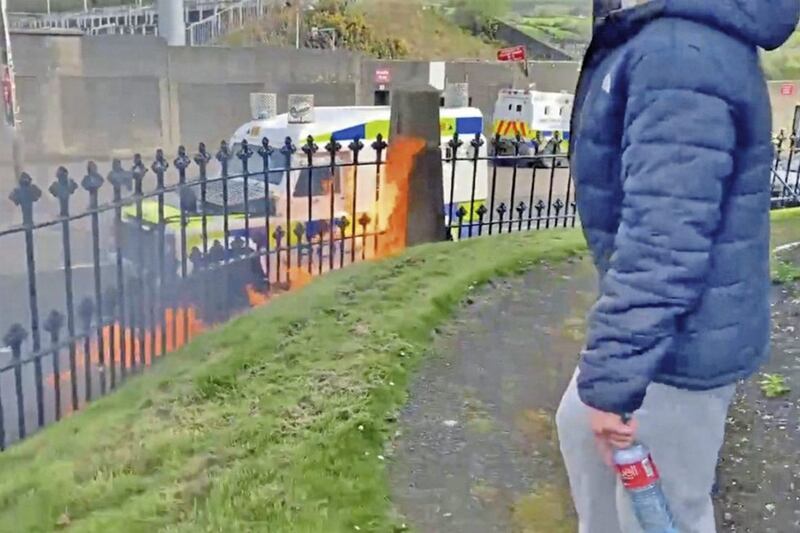THERE was much condemnation from all quarters after the disgusting scenes being beamed from Derry last week which saw young people attacking police from a graveyard following a dissident republican Easter march.
The march, which fell on the third anniversary of the murder of Belfast journalist Lyra McKee during a riot in Creggan, saw masked men and women parade through Derry, breaking the Parades Commission's determination on such paraphernalia.
As police moved in to make arrests, crates of petrol bombs appeared in the graveyard and dozens of young people endangered themselves and the police officers they attacked in a display of violence that shocked most reasonable people.
Watching it was troubling in so many ways. There was the blatant and sickening disrespect for the dead whose graves they were trampling over to launch their attacks.
There was the age of the young people expressing hate so fierce they were willing to attempt murder by launching flammable liquid at fellow human beings.
There was the older people cheering them on from the side lines, like some twisted football coaches rewarding violence with yells of approval.
There was the insane recklessness of youth, throwing petrol bombs, missing their intended targets and almost setting one another on fire.
There was the inevitability of the young people involved entering the criminal justice system and facing a cycle of hardship throughout their lives because of their actions.
It was intensely sad to watch on an already sad day. But it is a scene that is played out again and again and again across Northern Ireland. If it's not on the streets of Derry, it's on the Shankill Road in April, or it will be on our streets this summer. Our young men used as cannon fodder for malicious organisations wishing to force home a point – we haven't gone away, we have power.
How is it that 24 years past the Good Friday Agreement, with millions of pounds of 'peace money' pumped into this place, that we are not all that further forward? How is it that our young people are still being sucked into the ranks of paramilitary organisations or are the receiving end of a bullet from these paramilitary organisations.
They say the definition of insanity is doing the same thing over and over and expecting a different result. Is that not we are doing here?
People are quick to condemn young people who get themselves involved in these groups, or this violence, and they have every right to. But you can't fail to notice that there's not an awful lot of rioting breaking out in leafy middle class areas. This is an economic and societal problem.
Young men from working class areas face every barrier to a prosperous life. Poverty, lack of jobs, lack of investment and lack of hope can mould young minds, and when these organisations, malicious as they are, offer comradeship, excitement, money and power, vulnerable young men are easily sucked into the abyss. These organisations give them something to believe in when they have absolutely nothing else.
We need less condemnation and more practical solutions to this seemingly never-ending issue. Simply throwing money at this problem clearly doesn't work: if it did, we wouldn't be watching 14-year-olds lob petrol bombs at the police from atop someone's grave in Derry. We wouldn't have children barely in double digits up in court over riots in Belfast or standing at the peace line throwing bricks at their neighbours' houses.
If what we have been doing so far actually worked, we would be living in a decidedly more normal society and another generation of young people wouldn't be condemned to repeating the tired and dangerous actions of the past.
It's not just the way it is and it is not the way it should be. Our young people, all of our young people from all areas and all backgrounds, deserve better than this. They deserve to have a future that is not navigating a life with a criminal record, or life-changing injuries.
There are other, more positive ways some of our young people can channel their energies than partaking in our seemingly national past time of rioting. We need to fix the root of the problem.



